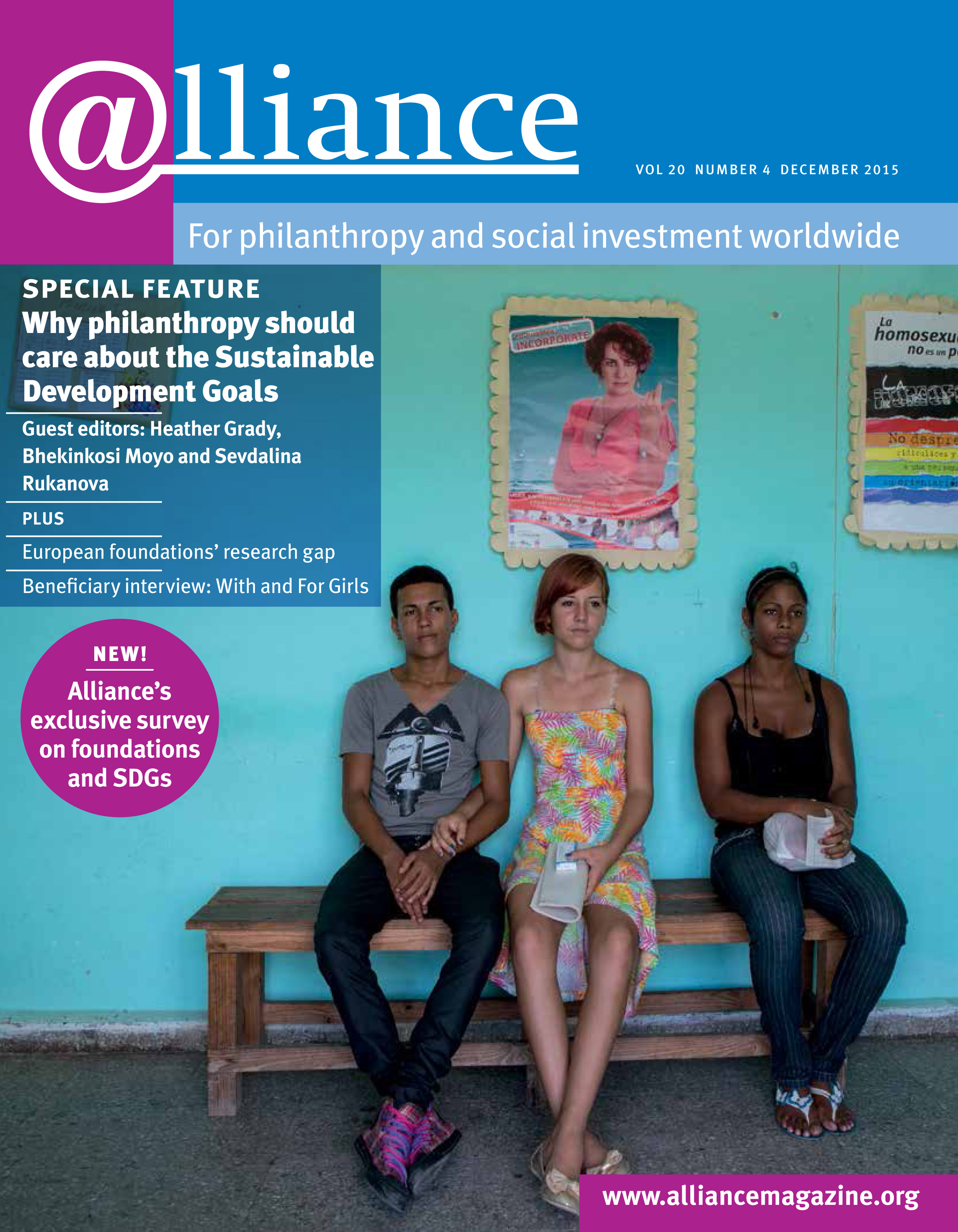In Alliance’s September 2015 special feature, Atallah Kuttab, Natasha Matic and Noha El-Mikawy wrote that ‘private foundations, no matter how independent they are of the corporate business interests of the founder, tend to stick to projects that promote the provision of services, avoiding those projects that address deep structural reasons for government failure to deliver. This shyness often stems from fear of government wrath, which could harm the business interests of the donor.’
Arab philanthropy is witnessing a game-changing moment.
In the past year alone, two private philanthropists in the region have made game-changing announcements declaring their intentions to leave the bulk – if not all – of their wealth to philanthropic causes upon their death. To be clear, we’re talking about billions of dollars here – amounts that rival the Gates’ and the Buffetts of the world – and the scepticism regarding the intentions of these grand gestures is rampant, perhaps predictably so.
Why the scepticism? Well, for one thing, public pronouncements of one’s wealth are uncommon in these parts. The correlation between philanthropy and religion dictates the more anonymous the giving, the higher the altruistic value. This edict of anonymous giving is so embedded in Arab culture that we have yet to establish culturally contextual metrics of accountability and transparency by which to measure our philanthropic activity on a regional scale.
In fact, many private foundations still struggle with the practice of releasing any data at all regarding their annual giving, while others simply insist on this data remaining anonymous and confidential.
As a result of this lack of data and transparency, one can’t help but wonder how and if these grand gestures of giving are even measurable in the long run. If we don’t have a system in place whereby we are held accountable as a sector, then how are we to guarantee that these promises will be indeed fulfilled?
Beyond the scepticism, though, are some critical questions that need to be asked if we are to see impact borne of this wave of philanthropy in any meaningful and sustainable way: how and where will the disbursement of funds be managed in terms of allocation?
The act of pledging billions of one’s private wealth towards philanthropic causes is awe-inspiring, no doubt, but it will only make an impact if there is a strategy in place for those resources to go towards addressing gaps assessed regularly and tweaked as needed.
How can we encourage engagement in philanthropic giving beyond the realm of the highest net worth billionaires of the region? How do we model a kind of private philanthropy that speaks to the average person in the region?
The policies and laws that govern the philanthropic space in the Arab region today are far more restrictive than they are enabling, and without a paradigm shift in that regard, the cadre of private philanthropists making inspiring charitable donations will continue to belong to the richest echelons of society and will remain unattainable and, ultimately, limited in the potential for true and lasting impact.
Naila Faroukey, Chief executive officer and executive director, Arab Foundations Forum.
Next letter to read:
Donor action to defend cross‑border philanthropy






Comments (0)